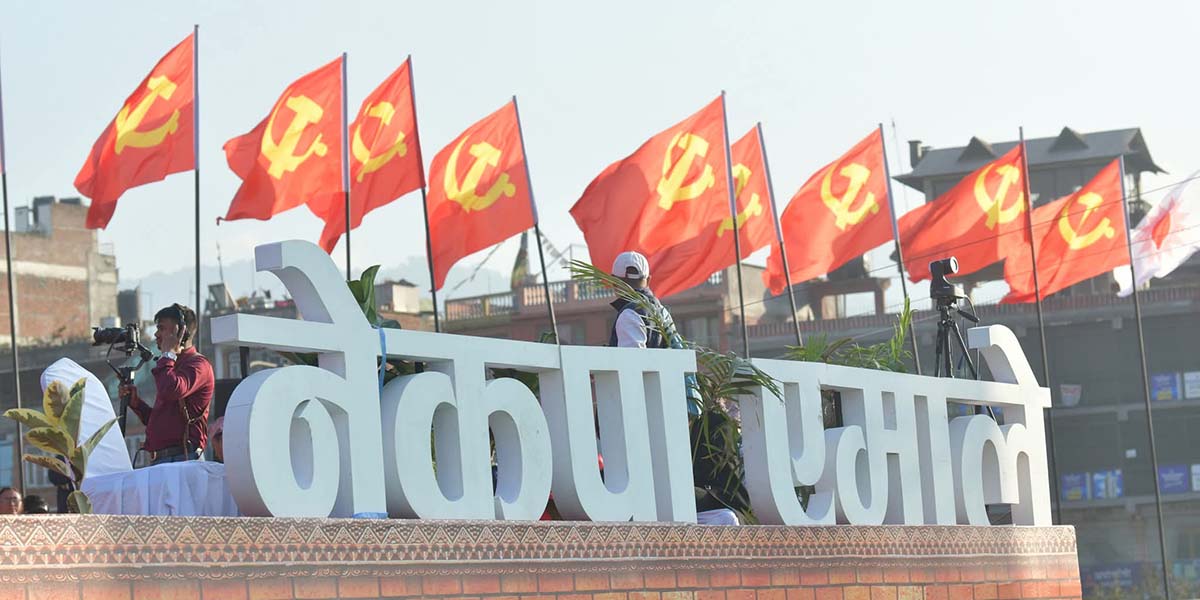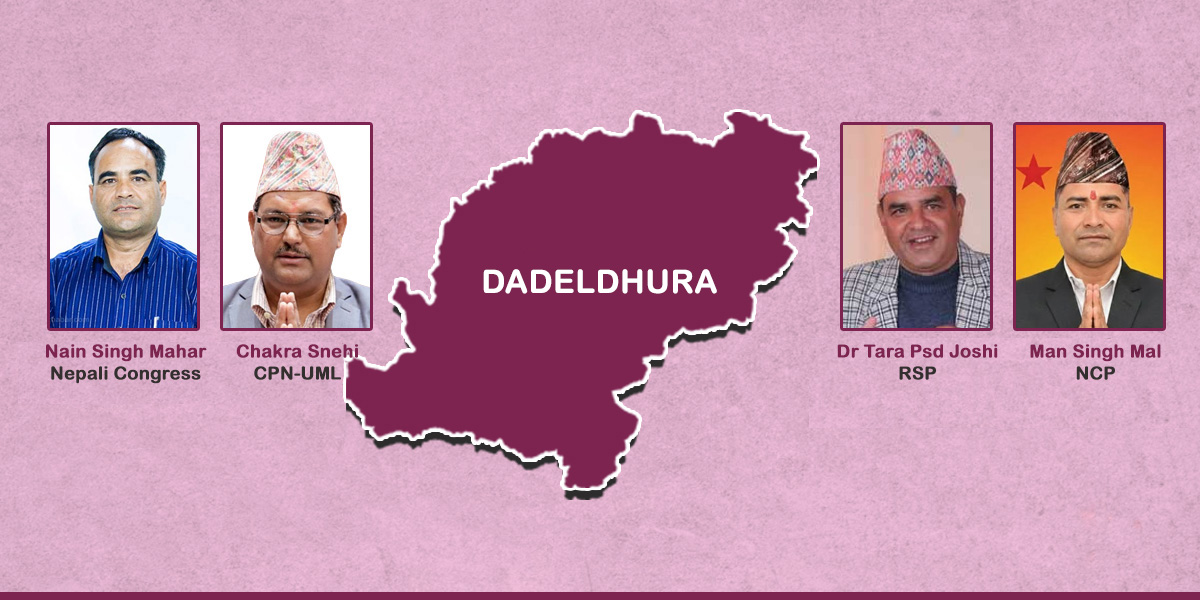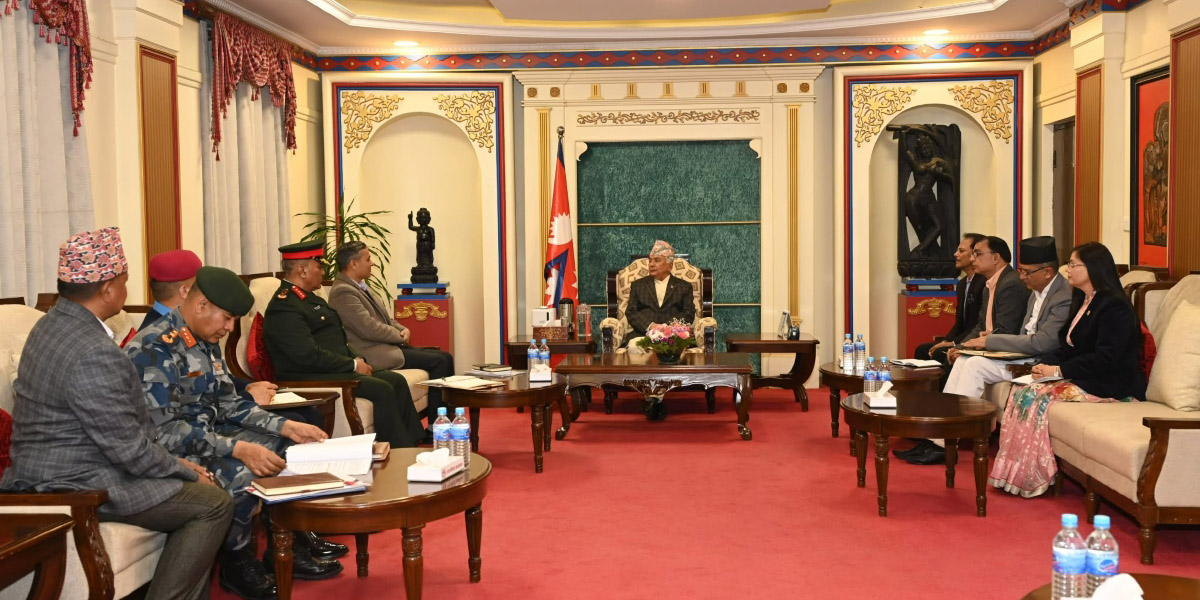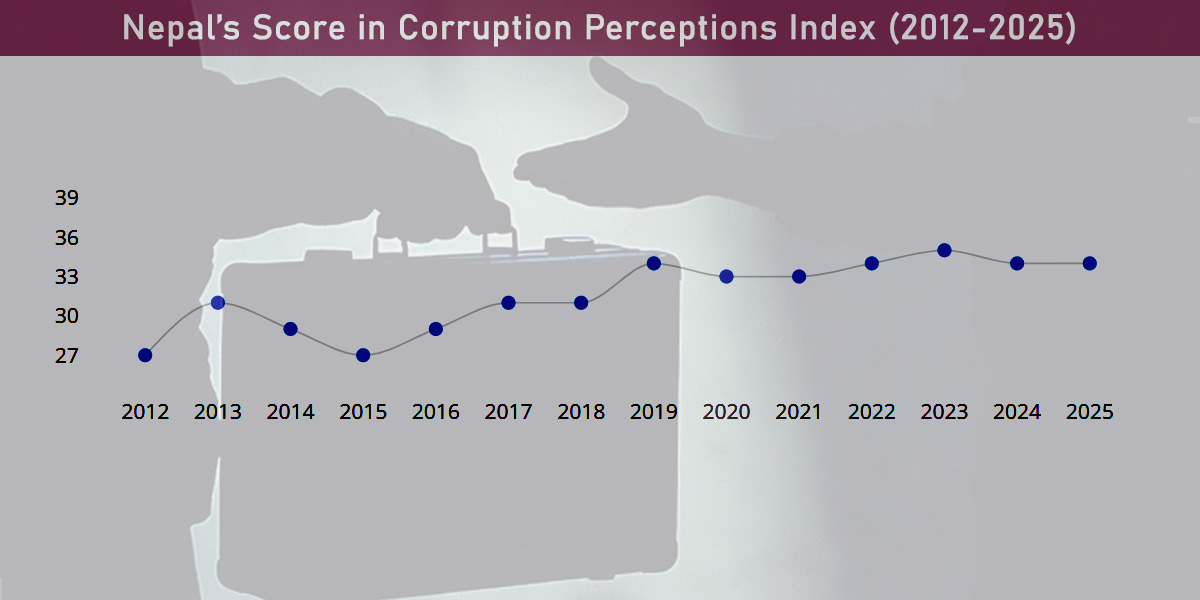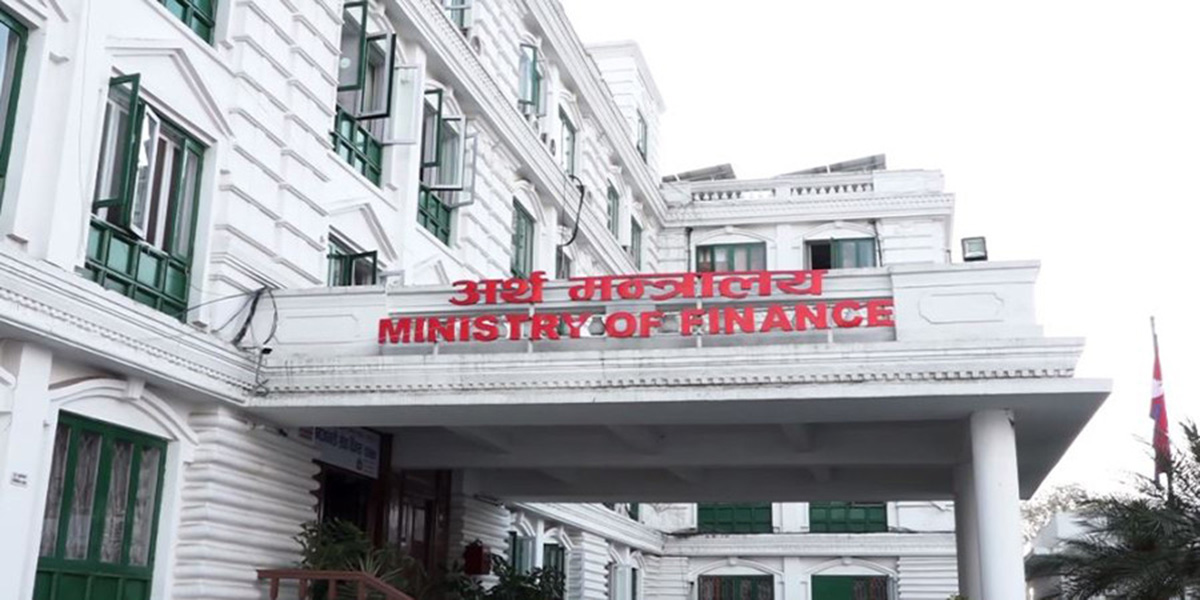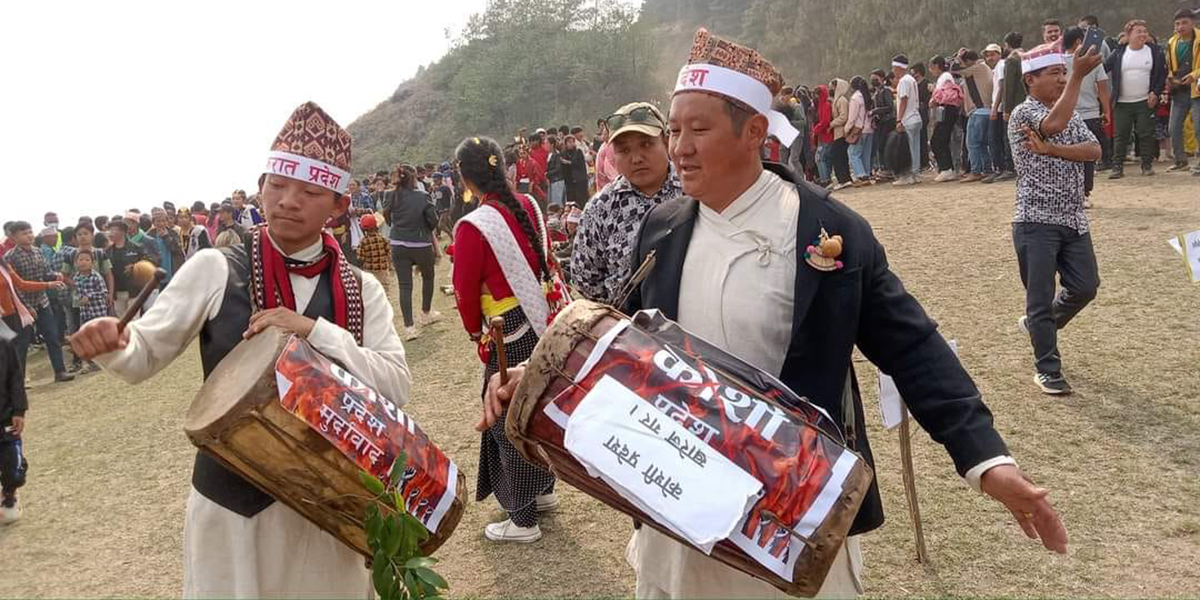 Kirant people protesting after then Province 1 was named as Koshi Province.
Photo: Kirant Community Center
Kirant people protesting after then Province 1 was named as Koshi Province.
Photo: Kirant Community Center
ITAHARI: In 2008, CPN (Maoist Center) won a historic 220 seats in the 601-member Constituent Assembly (CA), largely due to its identity-based politics. One of its promises was to create several new provinces like Limbuwan, Khambuwan, Kochila, Tamsaling, Newa, Tamuwan, Magarat, Tharuwan, and Khasan on the basis of identity if the party were to win the election. As a result, various movements sprang up, demanding provinces like Limbuwan and Khumbuwan in the east and Tharuwan in the west.
However, the actual process of naming the provinces proved to be more complicated than the Maoist Center had anticipated. Since the power to name provinces rested with the provincial assemblies, not the Maoist Center, none of the provinces could be named on the basis of identity as promised by the party. The party even backtracked on its promises by supporting a proposal to name the easternmost province, which they had previously pledged to name Limbuwan-Khumbuwan, as Koshi Province.
After the 2013 election, the Maoist Center saw a decline in its support base at all levels. As a result, the identity-based movement of the party started weakening.
“The Maoists were nowhere in the scene when leaders like Gopal Kiranti spearheaded the identity movement in the east some two decades ago. “When the movement started gaining ground, the Maoists gradually move eastward,” said Gyan Kiranti, the Secretary of the Kiranti National Front and the First Vice President of Maoist Center’s Itahari Town Committee.
According to Kiranti, the Maoist’s agendas weakened when it was forced to form coalition governments with CPN-UML and Nepali Congress in successive years.
“As the armed struggle progressed, several rounds of talks were held with the government, and the Maoist Center gradually became a part of the political mainstream. Although the party won a lot of seats in 2008, it fell short of a majority to form a government. It needed 401 seats required for a two-thirds majority to bring about drastic changes. It is one of the reasons why the party’s identity-based agendas failed.”
According to Kiranti, the party’s agendas weakened when it was forced to form coalition governments with CPN-UML and Nepali Congress in successive years.
Kiranti is in favor of naming the province on the basis of identity. “The demand for Kirant state is the appreciation of the heritage and the history. Kirant is our history. Most of the indigenous nationalities come under it. Even the Brahmins in the province grew up with Kirant civilization,” he added. He also said it was wrong on the part of the Maoist Center to not write a note of dissent in the naming proposal. “Central leaders didn’t give us any instruction on the naming process at that time. Now, the party has said it was a mistake to name the province ‘Koshi Province’. It has already said it should be corrected,” Kiranti said.
Uddhav Thapa, the leader of the Nepali Congress Parliamentary Party in Koshi Province Assembly, blamed the situation to a lack of consensus on the name among parties advocating for identity. “We are not against the identity movement. But those advocating for identity did not propose a clear name when preparation was underway to name the province,” Thapa added. While Thapa recognized the justification for the identity movement, he said that no one should use violence to target individuals.
“Some people advocating for identity are calling for scrapping of the federal system, which is a serious matter,” he added.
Thapa further said his party chose not to oppose the name ‘Koshi Province’ since the parties advocating for identity could not agree on a common name.
Although the perception of people towards the Maoist party changed after it joined the political mainstream, the trust of the people in the party is diminishing.
Political analyst Muktinath Ghimire says that the identity movement has failed to reach the common man. “The political parties seem to be deviating from their agendas. It is crucial to reflect on how the identity movement has impacted the lives of ordinary people,” he added.
According to Ghimire, although the perception of people towards the Maoist party changed after it joined the political mainstream, the trust of the people in the party is diminishing. “Initially, there was a belief that Maoists were raising the voices of the people and providing space to the common people. The party is now failing to stick to its agendas,” he said. “The party raised its agendas but failed to implement its promises. Instead, it has become power-hungry.”
Ghimire sees the identity movement lasting for decades to come as the demands of marginalized groups such as Dalits, indigenous nationalities, third genders, backward people, and minorities still remain unfulfilled. “There is a need to expand the identity movement to include the voices of all backward groups. It shouldn’t be the agenda of a certain indigenous group.”


![Maha Shivaratri being celebrated across the country [With Pictures]](https://en.himalpress.com/wp-content/uploads/2026/02/HRB_KTMImage2026-02-15at7.37.40AM1.jpg)
